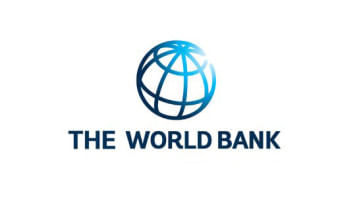What will Indian foreign secretary bring?
INDIA'S Foreign Secretary Subrahmaniam Jaishankar will visit Bangladesh from today on his tour of Saarc members aimed at "getting to know Saarc countries" as part of active Indian diplomacy. He started his trip on March 1 with Bhutan. From Bangladesh, he is expected to travel to Pakistan on March 3 and Afghanistan on March 4
Visits by India's foreign secretary to Bangladesh have always been important as the neighbours ordinarily have many unresolved issues which need to be settled peacefully. It is reported that the following issues may be raised during the talks with his Bangladeshi counterpart Md. Shahidul Haque:
* Intended visit of the Indian prime minister as the guest of honour in Dhaka on the Independence and National Day, March 26;
* Sharing of the waters of Teesta and other trans-boundary rivers;
* Time-frame for implementation of the Land Boundary agreement;
* Killing of Bangladeshi nationals along the border with India;
* Huge deficit of Bangladesh trade with India;
* Combating terrorism.
Apart from the unresolved Teesta water sharing agreement, both countries had agreed, through the Joint Communique in January 2010 following the Bangladesh prime minister's landmark visit to India, to discuss issues relating to Feni, Manu, Muhuri, Khowai, Gumti, Dharla and Dudkumar rivers at the Indo-Bangladesh Joint River Commission, but no concrete progress has been made until today.
Although it is reported that the Modi government has taken initiative for adoption of the Land Boundary Agreement by both houses of the Indian parliament, no timeframe is known for its implementation. In many ways, Modi's visit largely depends on its successful completion as he is not likely to pay his first visit to Dhaka with "empty hands."
The border killing of Bangladeshi citizens by the BSF soldiers is outrageous, and is contrary to the Indo-Bangladesh Joint Communiqué of January 2010 (paragraph 18). Continued abduction, torture and killing of Bangladeshis by BSF at the border have led an overwhelming section of people in Bangladesh to believe that India does not care about the loss of Bangladeshilives. Such killing needs to be stopped immediately.
Furthermore, the border killing is linked with the illegal cattle trade between the two countries. There has been a growing realisation among many Indian think-tanks, including Observer Research Foundation, that legal cattle trade may be examined to stop the killing of Bangladeshi civilians when smugglers of both sides are involved in a trade of about $1 billion annually. It is reported that one former director general of the Indian Border Security Force had made similar suggestions about legalising the cattle trade so that the border guards could concentrate on checking the inflow of more dangerous contraband like drugs and weapons.
Trade deficit for Bangladesh with India is huge. It is no more an economic issue but has turned into a political one in the country. It is common knowledge that apart from inadequate border infrastructure on facilitation of trade, tariff, para-tariff and non-tariff barriers impede growth of trade from Bangladesh to India. Paragraph 33 of the Joint Communique states clearly, "With a view to encouraging imports from Bangladesh, both countries agreed to address removal of tariff and non-tariff barriers and port restrictions, and to facilitate movement of containerised cargo by rail and water."
Researchers in both countries have found that Bangladesh has a potential export market of $2 billion in India and have suggested some steps such as, (a) India should recognise the principle of asymmetry and non-reciprocity in trade with Bangladesh, (b) there should be guaranteed market access (with liberal rules of origin,) of Bangladeshi products to India and (d) export quality Bangladeshi products should not be in India's negative list. These measures will hardly dent India's $2 trillion economy or market.
Bangladesh-India relations are complex, sensitive and multi-dimensional. The relationship is not restricted to only between governments but exists between the people of the two countries independently of the policies of the governments.
India's core interest in keeping friendly relations with Bangladesh is dictated primarily by two factors -- connectivity to the north eastern states by road, rail and ship through Bangladesh and maintaining security in the restive north eastern region.
The Hasina government moved quickly to address Delhi's concerns on cross-border terrorism and connectivity to the north-east on an ad-hoc basis.
Bangladesh provided transit facility through Ashuganj port for transportation of heavy duty equipment for ONGC Tripura Power Company's (OTPC) 727 MW gas-based project, located at Palatana in Tripura. Bangladesh agreed to transport 10,000 tonnes of food grains for Tripura through its territory. It is reported that Bangladesh has agreed to allow 100026 MW electricity generated from 429 dams in northeastern states though Bangladesh to West Bengal and to other places in India. So long as Bangladesh government is able to meet these basic Indian needs, India's interaction with Bangladesh government will be cooperative and will not change.
Hopefully, the foreign secretary's visit will make the Modi government realise that India has to move quickly on issues such as stoppage of border killings, agreement on water sharing of Teesta River, implementation of LBA and reduction of trade deficit.
The writer is former Bangladesh Ambassador to the UN, Geneva.

 For all latest news, follow The Daily Star's Google News channel.
For all latest news, follow The Daily Star's Google News channel. 



Comments